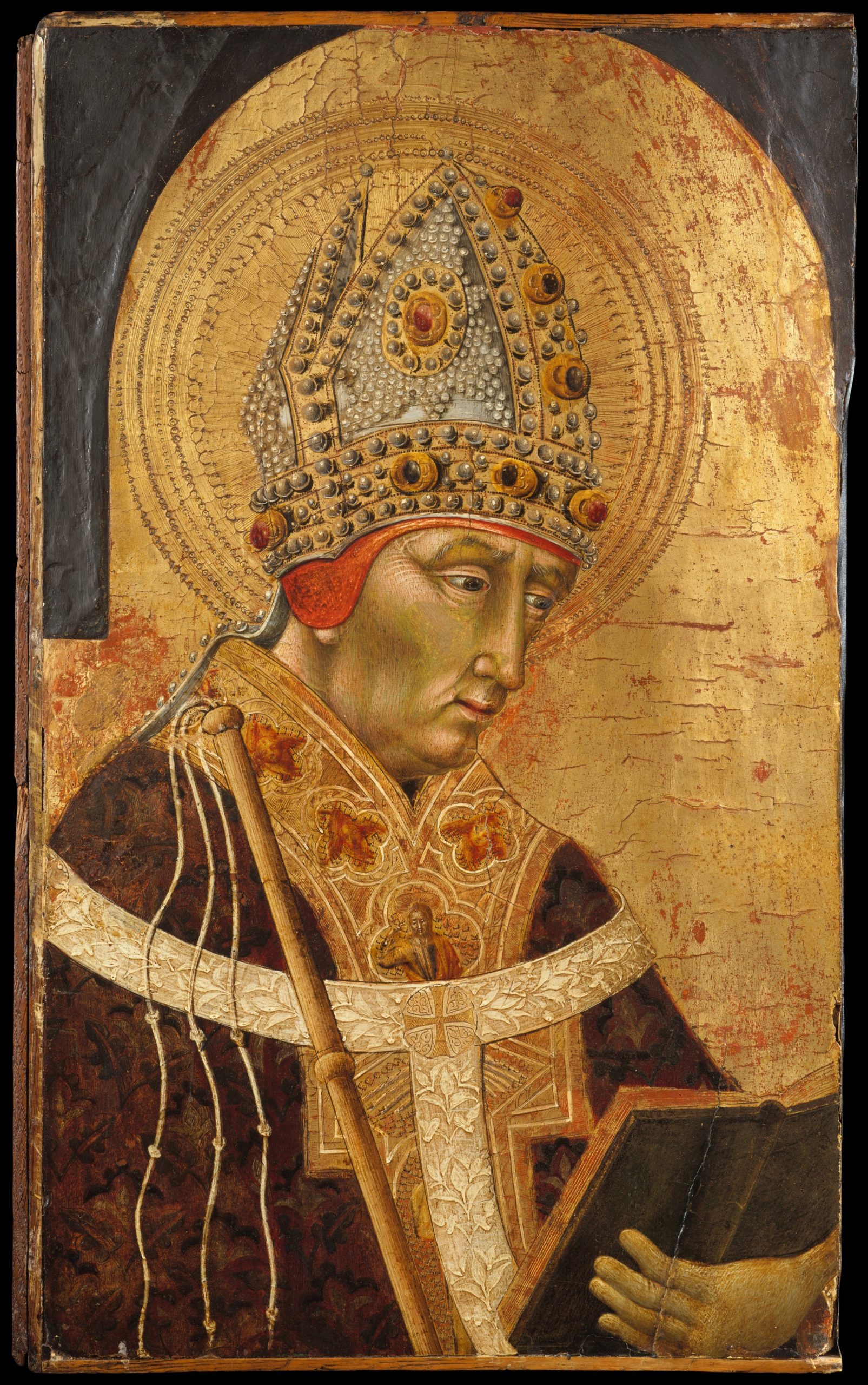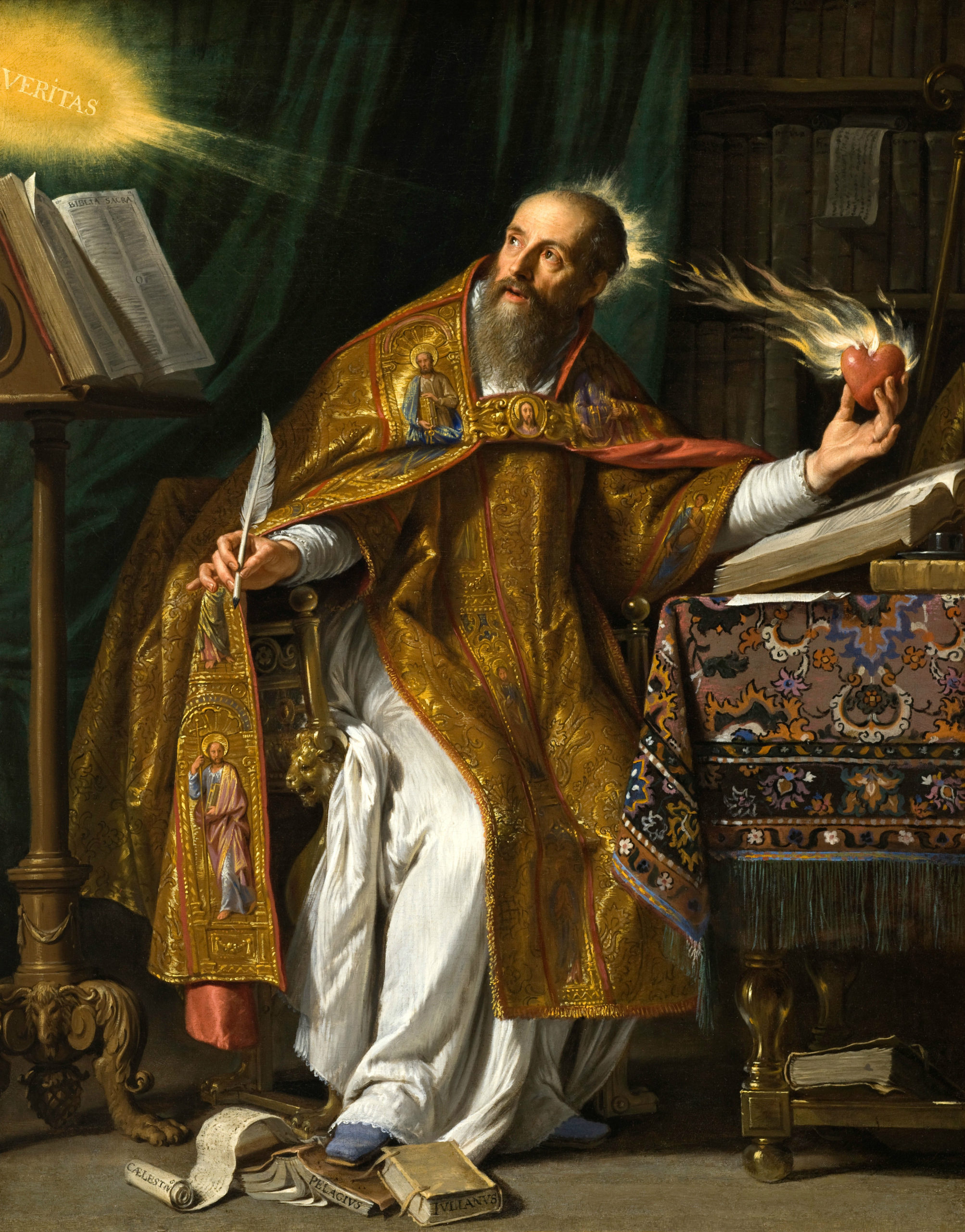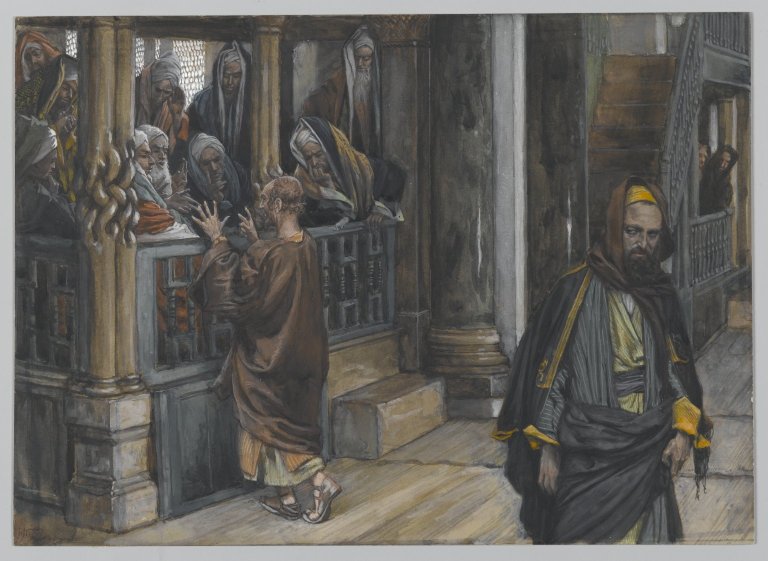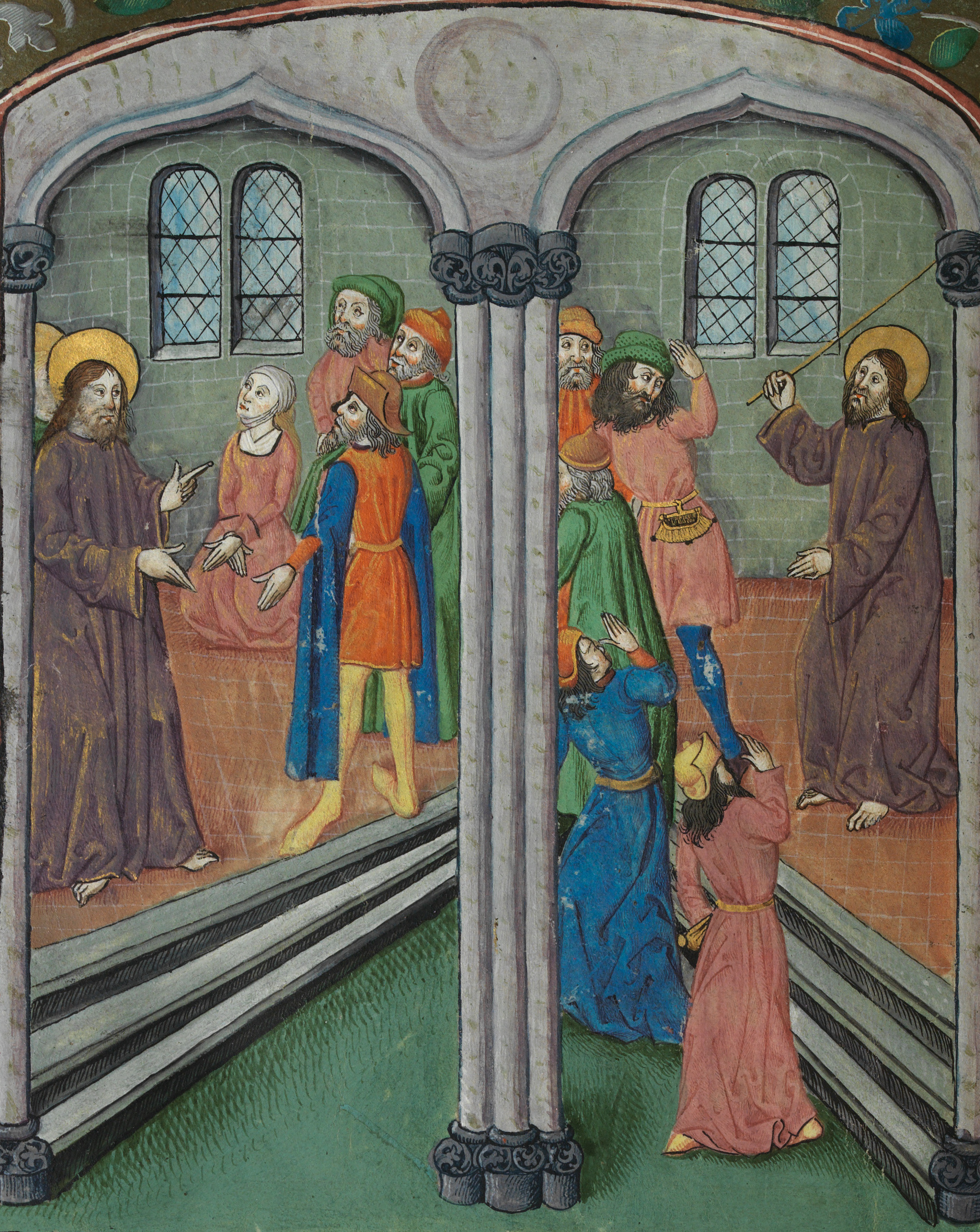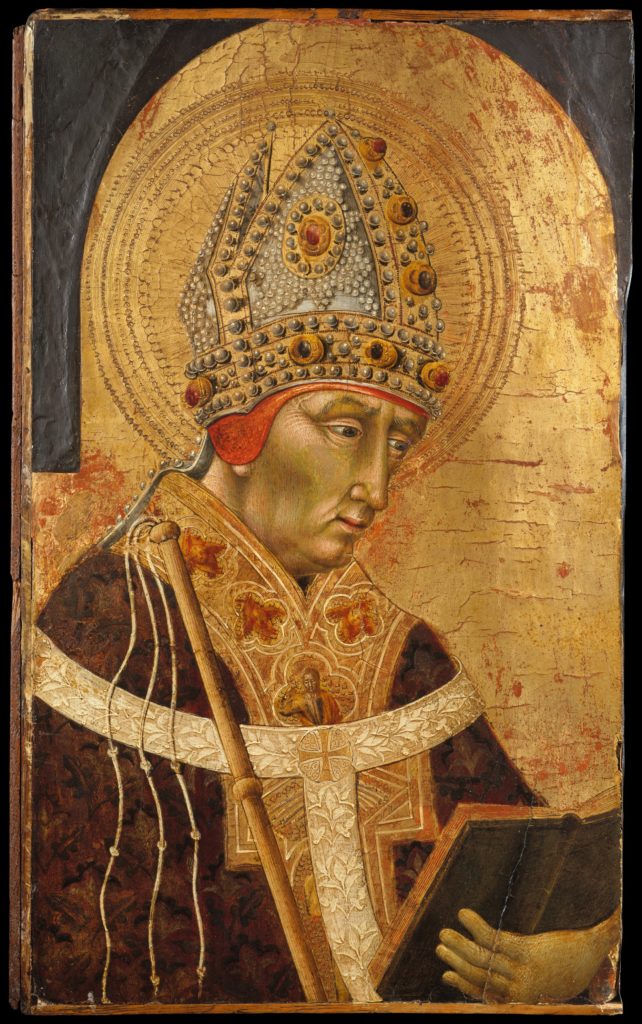
The Gospel reading for All Saints is Matthew 5:1-12a, the Beatitudes. Here’s how a host of Church Fathers reflect on the first few verses:
By not choosing His seat in the city, and the market place, but on a mountain in a desert, He has taught us to do nothing with ostentation, and to depart from crowds, above all when we are to be employed in philosophy, or in speaking of serious things.
St. John Chysostom, quoted in St. Thomas Aquinas’ Catena Aurea, as translated by St. John Henry Newman
When I have learned contentment in poverty, the next lesson is to govern my heart and temper. For what good is it to me to be without worldly things, unless I have besides a meek spirit? It suitably follows therefore, Blessed are the meek… Soften therefore your temper that you be not angry, at least that you be angry, and sin not. It is a noble thing to govern passion by reason; nor is it a less virtue to check anger, than to be entirely without anger, since one is esteemed the sign of a weak, the other of a strong, mind.
St. Ambrose, quoted in the same.
It is not enough that we desire righteousness, unless we also suffer hunger for it, by which expression we may understand that we are never righteous enough, but always hunger after works of righteousness.
St. Jerom, quoted in the same
Peace is the fixedness of order; by order, I mean an arrangement of things like and unlike giving to each its own place. And as there is no man who would not willingly have joy, so is there no man who would not have peace; since even those who go to war desire nothing more than by war to come to a glorious peace.
St. Augustine, quoted in the same
Read more in St. Thomas Aquinas’ Catena Aurea, which is included in all Verbum 9 Standard and Ordinariate software levels.

